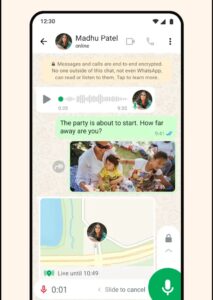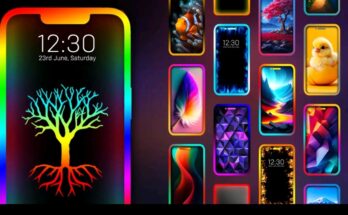WhatsApp Beta: Exploring the Cutting-Edge Features Before the Public
WhatsApp Beta is a special version of the globally popular messaging app, WhatsApp, designed for users who want early access to new features and updates before they are released to the general public. This beta program is available for Android and iOS users and plays a crucial role in the development cycle of WhatsApp by allowing real-world testing and feedback collection.
The primary purpose of WhatsApp Beta is to allow the development team to test experimental features in a real-world environment. These features may include updates to user interface design, new privacy settings, enhanced multimedia sharing capabilities, or improvements in security protocols. By observing how these features perform in the hands of beta users, developers can identify bugs, evaluate usability, and refine functionalities before a wider rollout

Joining the WhatsApp Beta program is relatively straightforward. Android users can typically join via the Google Play Store by enrolling through the official beta testing page, although spots may be limited due to high demand. iOS users need to use Apple’s TestFlight app, which also has a cap on the number of participants. Once enrolled, users receive updates to their WhatsApp app that include features still in the testing phase.
One of the key advantages of using WhatsApp Beta is the opportunity to experience the latest developments before anyone else. For example, beta users were among the first to try out features like disappearing messages, multi-device support, and the newly redesigned interface that aligns with modern design principles. These early trials provide insights into WhatsApp’s roadmap and priorities, especially as it competes with other messaging platforms like Telegram, Signal, and iMessage.

However, being a beta tester comes with responsibilities and potential drawbacks. Since features are still under development, the beta version can be unstable or buggy. Users may experience app crashes, data syncing issues, or compatibility problems. That’s why beta versions are not recommended for those who rely on WhatsApp for mission-critical communication.
WhatsApp actively encourages feedback from its beta community. Users can report issues through the app or via dedicated feedback forms. This feedback is vital for the app’s improvement, allowing developers to address problems quickly and ensure that new features meet user expectations. In this way, WhatsApp Beta acts as a bridge between the developers and the global user base, promoting a user-centric approach to innovation.
In recent updates, WhatsApp Beta has been experimenting with features like AI-driven chat suggestions, improved voice messaging tools, and more robust group management controls. These additions reflect WhatsApp’s goal of maintaining its dominance in the messaging space while adapting to users’ evolving needs
CLICK HERE
In conclusion, WhatsApp Beta is not just a testing platform; it’s a glimpse into the future of digital communication. It empowers users to be part of the app’s development journey and contribute to its growth. While it may not be suitable for everyone, especially those seeking stability, it offers a unique opportunity for tech-savvy users to stay ahead of the curve and shape the future of one of the world’s most-used messaging platforms.



